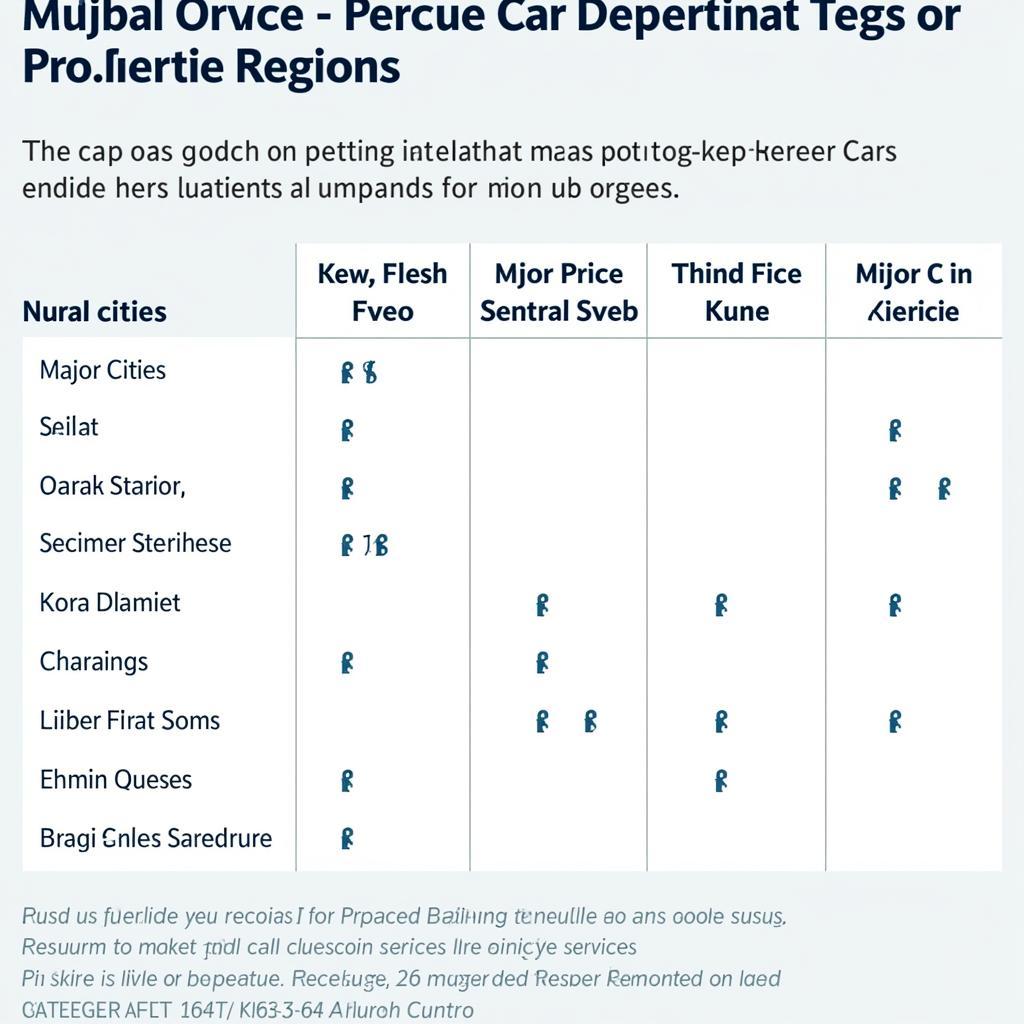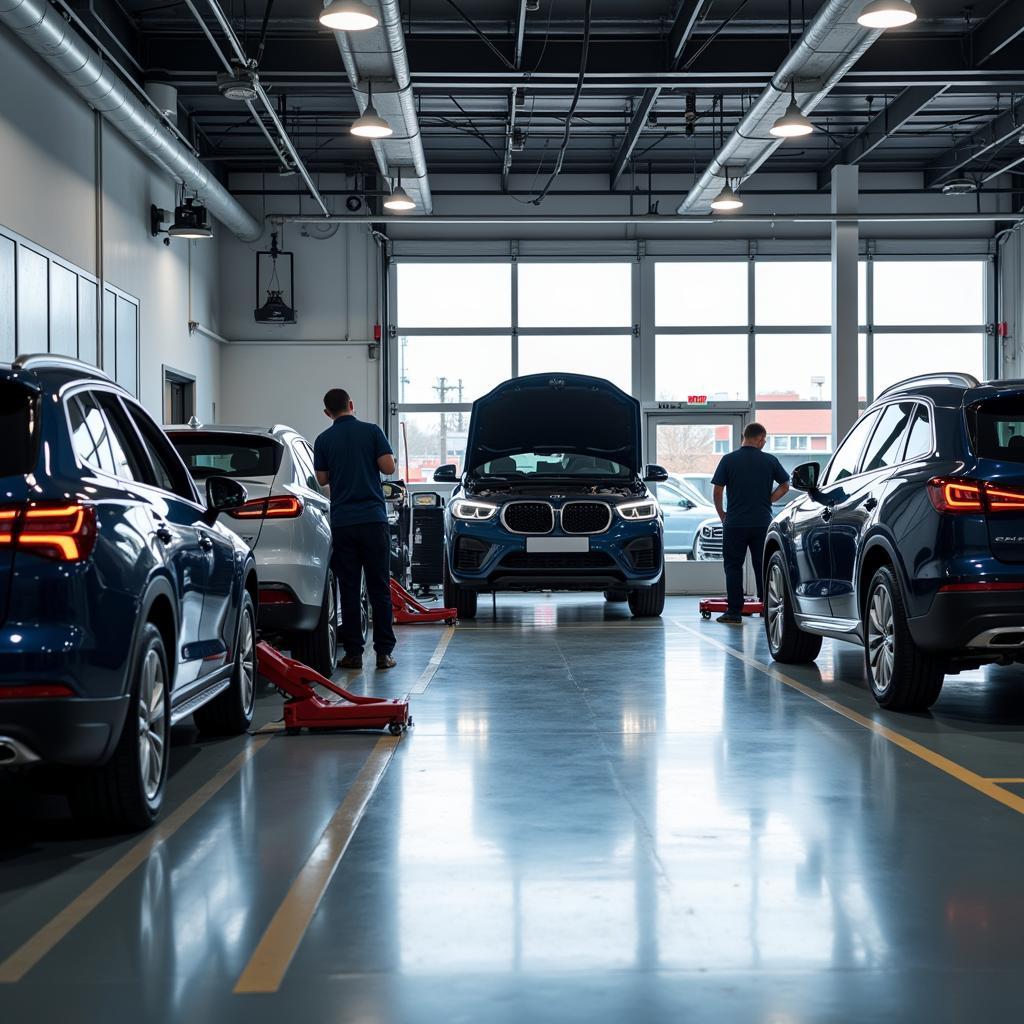What Are the Different Types of Car Service?
Maintaining your vehicle through regular servicing is essential for safety, performance, and longevity. But What Are The Different Types Of Car Service? Understanding these options empowers you to make informed decisions about your car’s care and budget. This article will provide a comprehensive overview of the various car service types available, from basic oil changes to major overhauls.
Knowing the ins and outs of car maintenance can significantly impact your wallet. For instance, you might find the information in our article on how much does an average car service cost particularly useful in budgeting for these expenses.
Understanding Basic Car Service
Basic car service, often referred to as an “oil change,” is the most frequent type of service. It involves replacing the engine oil and oil filter, crucial for lubricating engine components and preventing premature wear. This service usually includes a visual inspection of key components like brakes, tires, and fluids. Think of it as a regular check-up to ensure everything is running smoothly. How often should you get a basic car service? Generally, every 5,000-7,500 miles or as recommended by your car’s manufacturer. Sticking to this schedule prevents costly repairs down the line.
What if you’re driving a Mitsubishi and wondering about the costs? Our guide on how much is a car service mitsubishi provides valuable insights into service pricing for this specific make.
Interim Car Service: A Step Up in Maintenance
An interim car service goes beyond the basics, providing a more thorough inspection and maintenance. It includes all the elements of a basic service, plus additional checks on vital components like the steering system, suspension, and exhaust. This service is typically recommended every 10,000-12,000 miles or every six months, particularly for vehicles driven under demanding conditions. It helps identify potential issues before they become major problems.
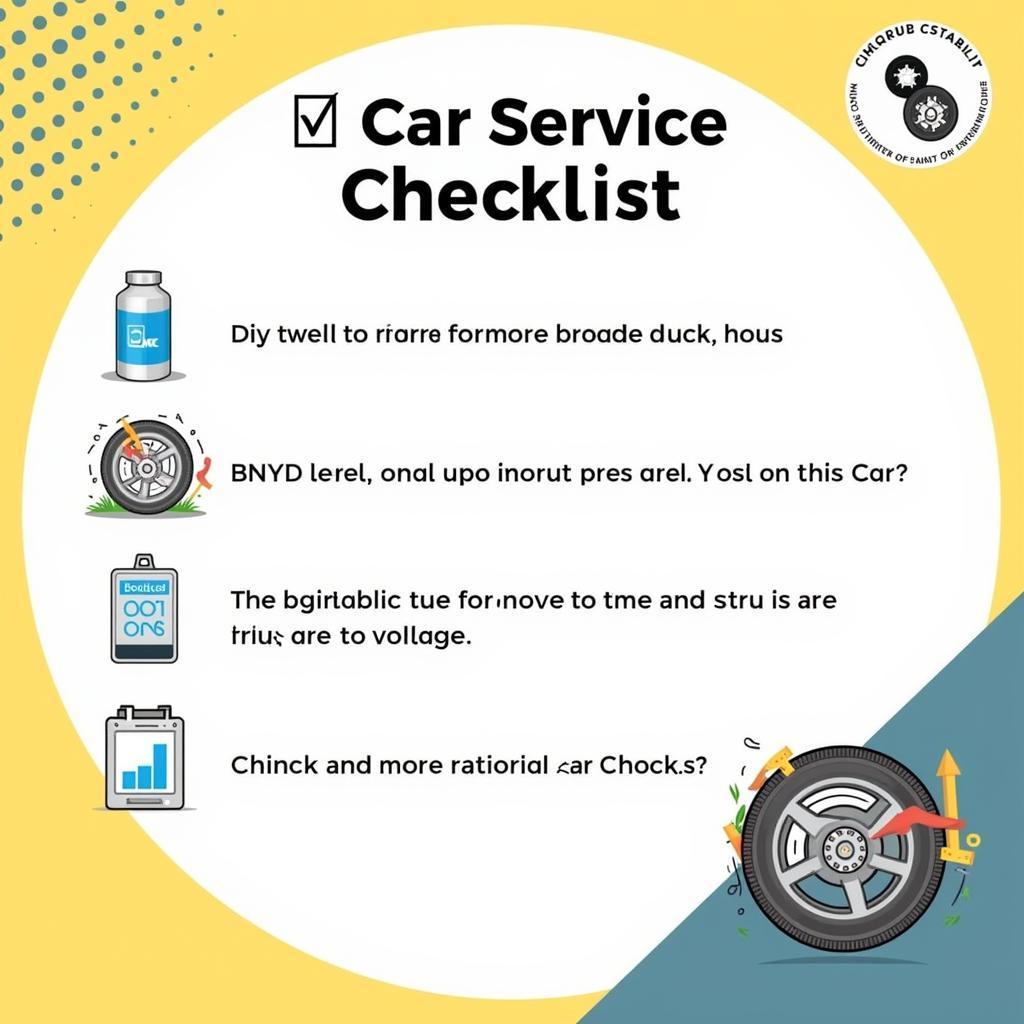 Interim Car Service Checklist
Interim Car Service Checklist
Full Car Service: Comprehensive Care for Your Vehicle
A full car service is the most comprehensive type of routine maintenance. It covers everything included in the interim service, along with a more in-depth inspection of all major systems, including the engine, transmission, brakes, cooling system, and electrical system. This service is recommended annually or every 20,000 miles, ensuring your vehicle receives the attention it deserves. It’s the equivalent of a thorough physical exam for your car, keeping it in optimal condition.
Major Car Service: Addressing Significant Maintenance Needs
A major car service goes beyond routine maintenance and addresses more significant repairs and replacements. This might include replacing timing belts, spark plugs, and other components that wear out over time. It’s often combined with a full service and performed every 40,000-60,000 miles or as recommended by the manufacturer. Think of it as a major overhaul to ensure your car continues to perform reliably for years to come.
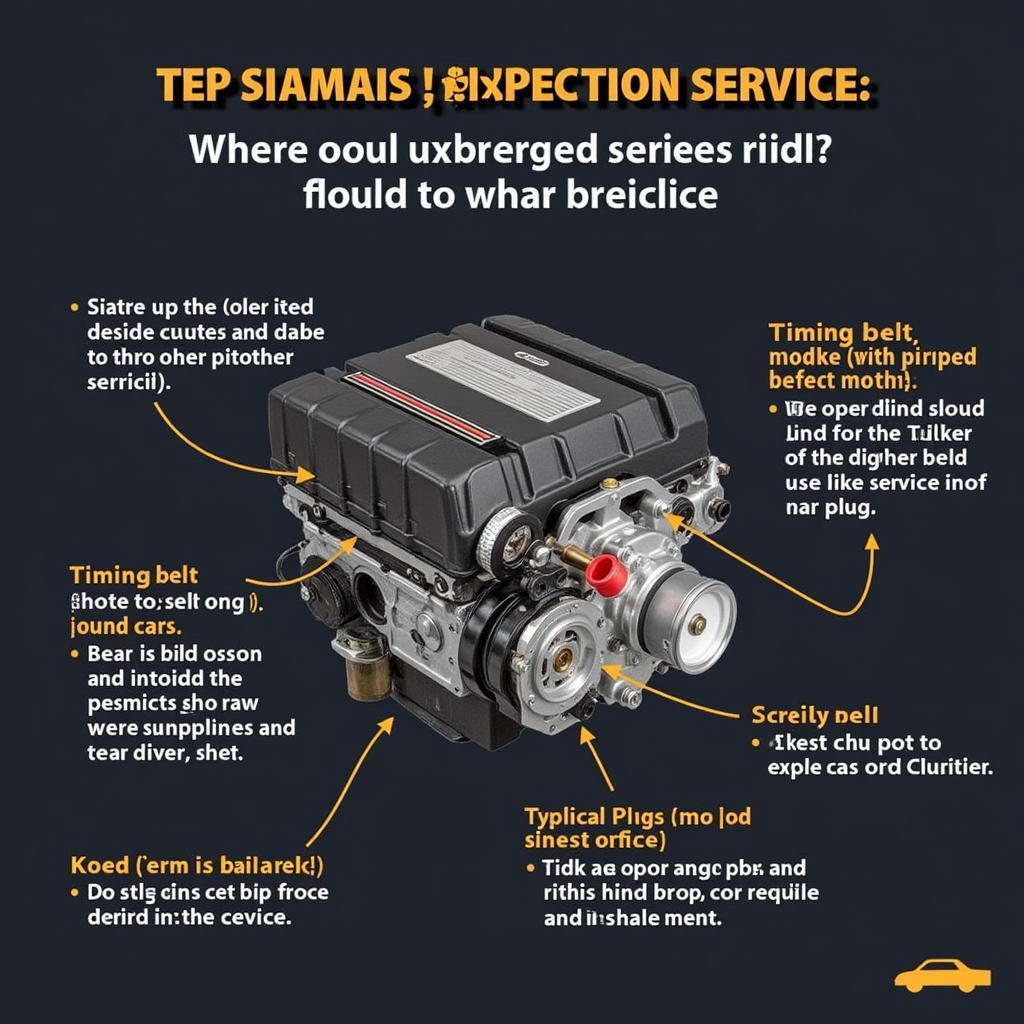 Major Car Service Components
Major Car Service Components
Specialist Car Services: Tailored to Specific Needs
Beyond the standard types of car service, there are specialized services catering to specific vehicle needs. These might include:
- Brake Service: Focuses on inspecting and servicing the brake system, including pads, rotors, calipers, and brake fluid.
- Transmission Service: Involves flushing and replacing the transmission fluid, essential for smooth gear changes.
- Cooling System Service: Checks and services the radiator, hoses, and coolant to prevent overheating.
- Air Conditioning Service: Ensures your AC system is functioning efficiently, providing cool air during warmer months.
Why Regular Car Servicing is Crucial
Regular car servicing is an investment, not an expense. It extends your vehicle’s lifespan, enhances performance, improves fuel efficiency, and, most importantly, ensures your safety on the road.
Considering different service facility types? What are the different types of service facilities for cars can guide you in making the right choice for your needs.
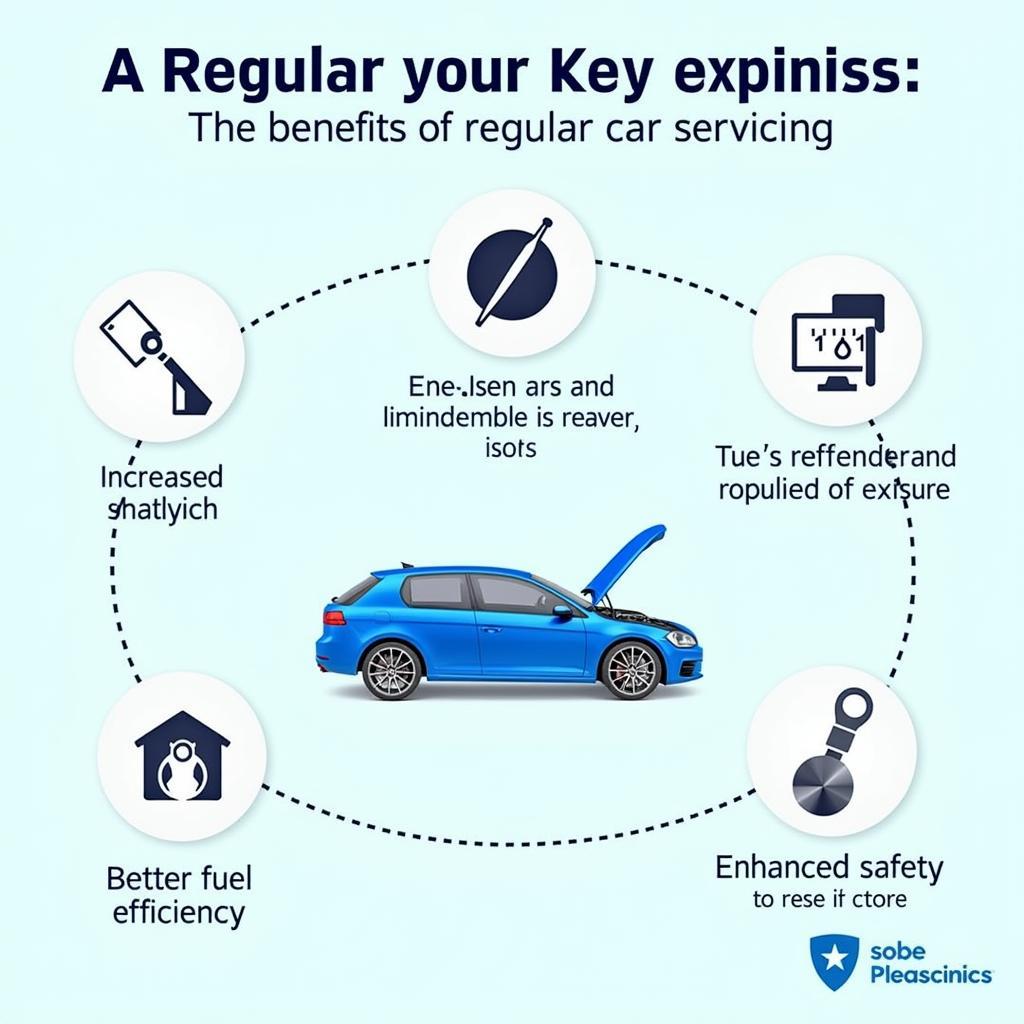 Benefits of Regular Car Service
Benefits of Regular Car Service
Conclusion
Understanding the different types of car service is crucial for maintaining your vehicle’s health and longevity. From basic oil changes to major overhauls, each service plays a vital role in ensuring your car performs optimally and keeps you safe on the road. By choosing the right service for your vehicle’s needs and mileage, you invest in its long-term reliability and your peace of mind. Remember to consult your car’s owner’s manual for manufacturer-recommended service intervals.
FAQ
- What is the difference between interim and full service?
- How often should I get my car serviced?
- What is included in a major car service?
- Why is regular car servicing important?
- How can I find a reputable car service center?
- What is the average cost of a car service?
- What are some signs that my car needs servicing?
Common Car Service Scenarios
- Squeaking Brakes: Indicates worn brake pads and the need for a brake service.
- Engine Warning Light: Signals a potential issue requiring diagnostic testing and possibly a major service.
- Rough Idling: Could suggest problems with spark plugs or other engine components.
- Overheating: May point to a problem with the cooling system, requiring a cooling system service.
Further Reading
Check out these related articles for more information: is child care an essential service and how to find home health care services.
Need assistance with your car service needs? Contact us via WhatsApp: +1(641)206-8880 or Email: [email protected]. Our 24/7 customer service team is ready to help.
